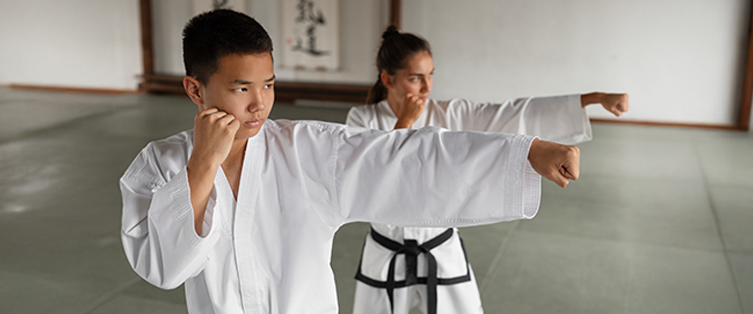Raising children can be difficult but also rewarding. A popular approach to parenting is called gentle parenting, which emphasizes understanding your child’s emotions and needs instead of punishment or strict rules. The importance of gentle parenting discipline cannot be overstated. It’s not just about avoiding timeouts or spankings; it’s about fostering a deep emotional connection with your child. On Pursueit, a holistic parenting platform, you can learn about gentle parenting. This article will discuss the benefits of gentle parenting and how to effectively put it into practice.
Understanding Gentle Parenting


Navigating the world of parenting can be like walking through a maze. You’re constantly faced with decisions that will shape your child’s future. That’s where Understanding Gentle Parenting comes into play. This section serves as your compass, guiding you through the core principles and actionable steps of gentle parenting. We’ve got you covered, from defining what it truly means to understand its foundational pillars.
What is Gentle Parenting?
Gentle parenting is a philosophy that emphasizes empathy, understanding, and effective communication. At Pursueit, we believe that gentle parenting starts with parenting from the inside out. It’s not just about reacting to your child’s behaviour but understanding the emotions and needs that drive it.
- Empathy: Understanding your child’s feelings.
- Communication: Open dialogue to understand needs.
- Respect: Treating your child as an individual.
By adopting this approach, you’re not just managing behaviour but building a lifelong emotional connection with your child.
The 4 Pillars of Gentle Parenting
Understanding the core principles is crucial for effective, gentle parenting discipline. At Pursueit, we focus on the four pillars that form the foundation of this parenting style.
- Connection: Building a strong emotional bond.
- Respect: Mutual respect between parent and child.
- Empathy: Understanding and sharing your child’s feelings.
- Love: Unconditional love and support.
These pillars are not just theoretical concepts; they are actionable steps you can start implementing today to make your parenting journey more fulfilling.
Gentle Discipline vs. Traditional Discipline
When raising children, the approach to discipline can vary widely. However, gentle parenting discipline offers a unique perspective focusing on understanding and empathy rather than punishment. This approach fosters a stronger parent-child relationship and encourages better behaviour in the long run. In this section, we’ll delve into the differences between gentle and traditional discipline, offering you some of the best parenting advice you’ll ever receive.
What is Discipline vs. Punishment in Gentle Parenting?
In traditional parenting, discipline often equates to punishment. However, gentle parenting discipline takes a different route. To help a child, we need to figure out why they are doing what they are doing. Once we understand their reasons, we can respond in a positive way. This approach is more about teaching than punishing.
- Teaching vs Punishing: Gentle discipline aims to educate the child about their actions.
- Understanding the Cause: It seeks to understand why the child acted a certain way.
By adopting this approach, you’re not just stopping bad behaviour but equipping your child with the emotional tools they need for the future.
Examples of Gentle Discipline
Gentle discipline is not a one-size-fits-all approach. Every child has unique needs, and this approach can be customized to meet them. It is highly adaptable and flexible. Here are some examples:
- Time-In Instead of Timeout: Spend time understanding the issue rather than isolating the child.
- Natural Consequences: Allow the child to experience the natural outcomes of their actions within reason.
These methods are effective and foster a sense of responsibility and understanding in the child.
Implementing Gentle Discipline
Implementing gentle parenting discipline is easier said than done, especially if you’re used to more traditional methods. However, the rewards are well worth the effort. This section will guide you on how to discipline when practising gentle parenting.
How Do You Discipline When Gentle Parenting?
The first step in implementing gentle discipline is to understand your own emotions. Our reactions to our children’s behaviour are more about us than them.
- Self-Awareness: Understand your triggers and emotions.
- Open Communication: Talk to your child about their feelings and concerns.
By being aware of your own emotional state, you can approach discipline in a more balanced and effective way.
The 5 Types of Discipline
In gentle parenting discipline, various types of discipline can be employed, each serving a unique purpose.
- Preventive Discipline: Setting up the environment to prevent issues.
- Supportive Discipline: Providing the tools and resources for the child to succeed.
Understanding these types allows you to tailor your approach to your child’s needs, making your discipline methods more effective and empathetic.
Benefits of Gentle Parenting
When it comes to gentle parenting discipline, the benefits are manifold. Not only does it create a nurturing environment for your child, but it also fosters a deep emotional connection between parent and child. Pursueit offers a holistic approach to parenting that aligns perfectly with gentle parenting principles.
Emotional Benefits for Children
One of the most significant advantages of gentle parenting discipline is the emotional well-being it fosters in children. Kids raised in a gentle environment tend to be more empathetic, understanding, and emotionally intelligent.
- Empathy: Children learn to understand the feelings of others.
- Self-Regulation: Kids develop better control over their emotions.
These emotional skills are beneficial in childhood and life skills that your child will carry into adulthood.
Long-term Advantages
The long-term benefits of gentle parenting discipline are equally compelling. Children raised in such an environment are more likely to be confident, independent, and resilient adults.
- Confidence: Kids are more self-assured.
- Independence: Encourages self-reliance and problem-solving skills.
By adopting the gentle parenting approach offered at Pursueit, you’re setting your child up for success in the long run.
Common Misconceptions About Gentle Parenting


Gentle parenting is often misunderstood, leading to several misconceptions. One of the most common myths is that it’s too lenient and lacks discipline. However, Pursueit aims to debunk these myths by offering a balanced approach to gentle parenting discipline.
Is it Too Lenient?
One of the most common criticisms of gentle parenting discipline is that it’s too lenient. However, this couldn’t be further from the truth. Gentle parenting is not about letting your child do whatever they want; it’s about setting boundaries respectfully and understanding.
- Respectful Discipline: Not the absence of discipline but a different approach.
- Understanding: Taking the time to understand the child’s needs and feelings.
This is the best parenting advice for those who are sceptical about the effectiveness of gentle parenting.
Setting Boundaries in Gentle Parenting
Another misconception is that gentle parenting lacks boundaries. However, setting boundaries is an integral part of gentle parenting discipline.
- Clear Boundaries: Well-defined limits that are consistently enforced.
- Positive Reinforcement: Encouraging good behaviour rather than punishing bad behaviour.
By enrolling in Pursueit’s parenting classes, you’ll learn how to set these boundaries effectively, offering advice for new moms and seasoned parents.
Conclusion
In this comprehensive guide, we’ve explored the nuances of gentle parenting discipline, from understanding its core principles to implementing effective strategies. We’ve also debunked common misconceptions and highlighted the long-term benefits for parents and children. The key takeaway is that gentle discipline is not just an alternative approach but a holistic way of nurturing your child’s emotional and psychological well-being. With Pursueit, you can access resources and classes that guide you in mastering this art of parenting from the inside out. Remember, the best parenting advice often comes from a place of understanding and empathy, not just rules and regulations.
Ready to embark on a transformative parenting journey? Don’t wait. Pursueit offers the perfect platform to learn and implement gentle parenting discipline. Take the first step today and make a lasting impact on your family’s life.
FAQs
Q1: What makes Pursueit’s gentle parenting classes unique?
Our classes focus on gentle parenting discipline, offering practical tips and real-world solutions tailored to your family’s needs.
Q2: How does Pursueit incorporate emotional intelligence into parenting?
We believe in parenting from the inside out, focusing on emotional intelligence as a cornerstone for effective discipline.
Q3: What is the best parenting advice for new moms?
The best parenting advice we can offer is to approach discipline as guidance, not punishment. Our classes provide invaluable advice for new moms.
Q4: Any parenting tips for new parents?
Our top parenting tip for new parents is to be consistent but flexible in your disciplined approach, adapting as your child grows.






Leave a Reply